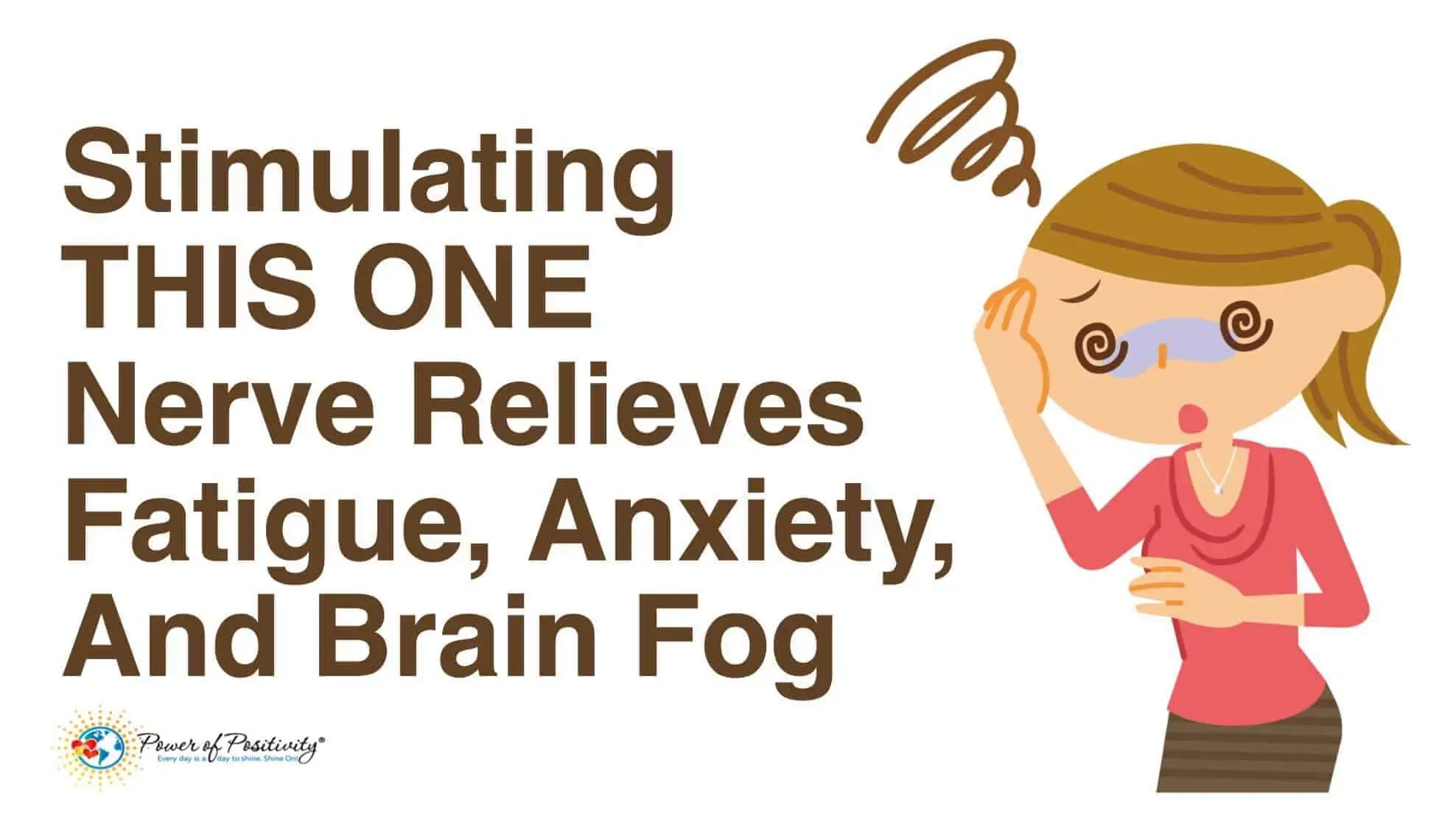Every organ in your body is connected to the vagus nerve, so there’s little wonder that stimulating your vagus nerve helps relieve fatigue, anxiety, brain fog and more. The vagus nerve is important to your sense of intuition, or your gut sense. This knowledge can help you to pay attention to tiny but important details that help you make good decisions.
Vagus means ‘wandering’ and this nerve reaches all the way from your brain to your intestines. The vagus nerve also connects the brain to many other vital organs. The nerve sends information from the brain and receives information from the organs. In turn, the data gets sent back to the brain in a feedback loop.
Think about your fight or flight response for a moment. Your sympathetic nervous system is responsible for getting you ready to face danger. Once the danger has subsided, your parasympathetic nervous system resumes normal, relaxed bodily functioning.
The vagus nerve is responsible for digestion, rest, and recovery from environmental stress. Anything from a hectic day at work to coming back from a run is when your parasympathetic nervous system takes over by activating organs to begin the ‘rest and digest’ mode.
Clinical Psychologist Dr. Arielle Schwartz says that the vagus nerve helps with ‘regulation of nervous system states [and] is critical for the treatment of mental health conditions.’ Anything from mild anxiety to post-traumatic stress disorder (PTSD) and depression are likely liked to the functioning of the vagus nerve.
7 Ways to Stimulate Your Vagus Nerve to Relieve Fatigue, Anxiety And Brain Fog
By stimulating the vagus nerve, we are sending a message to our body that we are ready to relax and we want our organs to go into a relaxed state as well. Learning to stimulate your vagus nerve is another tool in your fight against stress and anxiety.

1. Meditation to Alleviate Anxiety
Researchers believe that there is a connection between mood disorders like anxiety and depression and problems in the vagus nerve function. Researchers studying the vagus nerve and its connection to mood, memory, and learning believe that ‘understanding the neurobiology of emotional regulation and dysregulation’ when these emotional states cannot be ‘turned off’ will lead to powerful and exciting new treatments for mood and anxiety disorders.’
Stimulating the vagus nerve is one way that we can teach our bodies to turn off arousing emotional states, such as anxiety. Researchers found that a specific type of meditation, called the ‘Loving Kindness Meditation’ helped reduce heart rate variability. Specifically achieving a positive emotion and a positive social connection to others in combination with meditation changed the activity of the vagus nerve.
2. Massage
You can manually stimulate your vagus nerve by massaging several areas. A foot massage can stimulate vagus nerve activity, as can massaging your neck. A neck massage along the carotid sinus (the right side of your throat near where you check your pulse) can also stimulate the vagus nerve.
3. Cold
Drinking cold water or splashing cold water on your face may be enough to stimulate your vagus nerve. You can also take cold showers, take a swim in an unheated pool or try cryotherapy.
4. Fasting to Reduce Anxiety
The vagus nerve is responsible for digestion when your brain says that you are in a safe environment. Otherwise, your body might deprioritize digestion when dealing with stress. By fasting, an empty stomach sends signals back to the brain that digestion is unnecessary. Thus, your body will use your energy resources for relaxation instead.
5. Breathing techniques
Deep breathing is always relaxing to your body, but you can use other breathing techniques to stimulate your vagus nerve. If you are interested in ways to relieve anxiety, you may have already read our article called This Ancient Breathing Technique Can Help Relieve Anxiety. Alternate nostril breathing or yogic breathing is a great way to stimulate the vagus nerve.
Another breathing technique that you may never have tried is inhaling deeply and then closing your airway while pushing your breath against the inside of your chest and bearing down with your abdominal muscles (like you are trying to pass gas). This method of applying internal pressure from the lungs out to the surrounding organs stimulates the vagus nerve as it connects your heart, spleen, lungs, stomach, and small intestines.
6. Chanting
Om. That single chant in the key of somewhere between B, C, and C# on the musical scale creates internal vibration in our throats. It sends smaller vibrations to the lungs and other organs.

7. Laughter with friends
Researchers in the journal of psychological science found that more social connections led to more opportunities for positive emotions, which also increased stimulation of the vagus nerve. The researchers say ‘This experimental evidence identifies one mechanism – perceptions of social connections – through which positive emotions build physical health.’ Laughter makes you feel good and stimulates your vagus nerve, which helps produce overall good health and well-being.
For more information on your intuition and trusting your gut, read our article called 5 Signs You’re Not Listening to Your Gut Instincts.



















